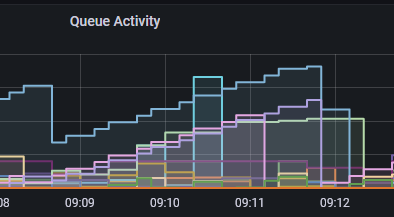I wrote recently about the support for Jakarta Messaging that is part of IBM MQ 9.3 and work to integrate it with Spring. At that point, I gave the mq-jms-spring-boot-starter a pre-release version number as there was not a formal version of the Spring Framework and Spring Boot packages. But that changes this week, with the release of Spring Boot 3.0.0. And so there is now a corresponding MQ release of the starter package, also version 3.0.0 to match.
> Task :bootRun
. ____ _ __ _ _
/\\ / ___'_ __ _ _(_)_ __ __ _ \ \ \ \
( ( )\___ | '_ | '_| | '_ \/ _` | \ \ \ \
\\/ ___)| |_)| | | | | || (_| | ) ) ) )
' |____| .__|_| |_|_| |_\__, | / / / /
=========|_|==============|___/=/_/_/_/
:: Spring Boot :: (v3.0.0)
2022-11-25T12:06:23.591Z INFO 1091972 --- [ main] sample3.Requester : Starting Requester using Java 17.0.5 with PID 1091972 (mq-jms-spring/samples/s3.jms3/build/classes/java/main started by metaylor in mq-jms-spring/samples/s3.jms3)
2022-11-25T12:06:23.596Z INFO 1091972 --- [ main] sample3.Requester : No active profile set, falling back to 1 default profile: "default"
...
Aside to the aside: this latest version of the MQ Boot Starter has new optional configuration parameters providing the equivalent of the -D command-line options that you might use for defining location and credentials for TLS keystores. Look at the ibmmq.jks parameters.
This post was last updated on November 26th, 2022 at 02:48 pm

